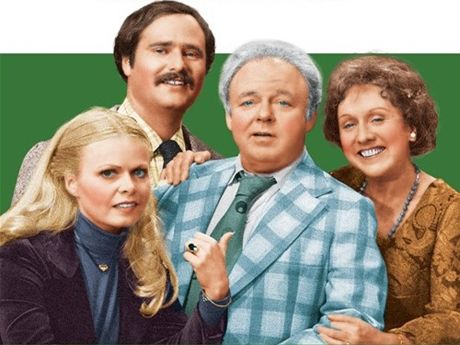
Norman Lear, who passed away at the age of 101, was a transformative figure in television history, leaving behind a legacy that reshaped the cultural landscape of TV. A pioneer in the sitcom genre, Lear’s shows—ranging from All in the Family to The Facts of Life—addressed complex social issues like racism, gender roles, mental health, and family dynamics, all while delivering sharp humor and memorable characters. His fearless exploration of taboo topics, such as homosexuality, war, and the struggles of marginalized communities, made his work both revolutionary and controversial in the best sense of the word. Shows like All in the Family didn’t just entertain—they forced viewers to confront uncomfortable truths about society through characters like Archie Bunker, whose bigotry was both criticized and satirized, making him one of TV’s most iconic and provocative characters.
All in the Family, which aired from 1971 to 1979, was Lear’s first major success and set the tone for the rest of his career. The show’s impact cannot be overstated: it won multiple Emmys, became a ratings juggernaut, and introduced the world to a new kind of sitcom—one that dealt openly with political and social issues. The show’s success led to a series of spinoffs and sister shows, including The Jeffersons (1975–1985), which followed George and Louise Jefferson as they moved up the social ladder, and Maude (1972–1978), which tackled feminist themes through the sharp-tongued character of Maude Findlay, played by Bea Arthur.
Beyond these seminal sitcoms, Lear also created Good Times, One Day at a Time, Silver Spoons, and 227, each of which left an indelible mark on TV. Good Times (1974–1979), for instance, was one of the first sitcoms to center around an African American family, addressing issues of race, poverty, and resilience with humor and heart. The Facts of Life (1979–1988), another of Lear’s significant contributions, focused on a group of girls at an all-girls boarding school, and it became a beloved show for its blend of coming-of-age themes and comedic moments.
Lear’s ability to blend satire with compassion created shows that were not only entertaining but also socially significant. They reflected the changing attitudes of the time and often pushed boundaries, tackling topics that were rarely discussed on television before. His shows were revolutionary, using humor to explore the complexities of American life, from the dysfunctions of the nuclear family to the challenges of living in a rapidly changing society.
Despite his death, Norman Lear’s influence on television remains undeniable. His work paved the way for future generations of TV creators who understood that entertainment could be both thought-provoking and deeply human. Even as his shows are no longer the centerpiece of today’s media landscape, they continue to resonate in modern reboots, syndication, and through the enduring legacy of the characters he created. In a world where television continues to evolve, Norman Lear’s groundbreaking work remains as relevant as ever—both as a reflection of the past and a beacon for the future of the medium.
